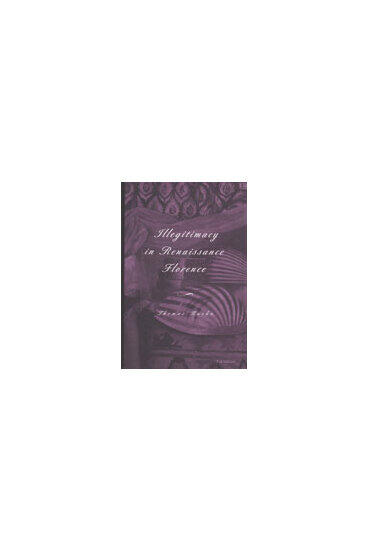Illegitimacy in Renaissance Florence
An investigation of the complex social and legal issues surrounding illegitimate offspring in Renaissance Florence
Description
As far back as Jacob Burckhardt, illegitimate children have been considered advantaged, insofar as they lacked family obligations. Celebrated Renaissance figures such as Petrarch, Boccaccio, Alberti, and da Vinci were born illegitimately. Of course, their status put these children at a legal and a social disadvantage that was nearly impossible to overcome in usual circumstances. Illegitimacy in Renaissance Florence is the first systematic study of a population of illegitimate children--in this case in the city often seen at the heart of Renaissance politics and culture, Florence.
The Florentine catasto, a fiscal survey of households taken at several points in the fifteenth century, locates hundreds of illegitimate children and reveals a great deal about their household circumstances and parentage. Supplementing this information are notarial documents and family account books. Illegitimacy in Renaissance Florence places Florentine illegitimate children in a complete legal context, culminating in examination of several Florentine legal cases. Thomas Kuehn shows how lawyers were called on to cope with and make legal sense of the actions and prejudices of Florentines toward their illegitimate kin.
It is clear, in its simplest terms, that illegitimacy in Florence was a permanent, if not fixed, status. Most illegitimate children, especially girls, were abandoned; infanticide was undoubtedly practiced. But even those children raised by benevolent fathers and granted legitimation always remained "legitimatus" and not "legitimus." Florentines whose illegitimate paternity was admitted were overwhelmingly born of elite fathers but poor or servile mothers. In neither social nor legal terms did the illegitimate share fully in the personhood of the legitimate adult male Florentine citizen. Still, ambiguities of status could be useful for those with sufficient wealth and social standing to exploit their potential.
Illegitimacy in Renaissance Florence will appeal to social historians of Europe, medieval and early modern, especially those concerned with family life, women, and children, as well as all those interested in Florentine history. Legal historians will find it useful as well.
Thomas Kuehn is Professor of History, Clemson University.
Thomas Kuehn is Professor of History, Clemson University.

